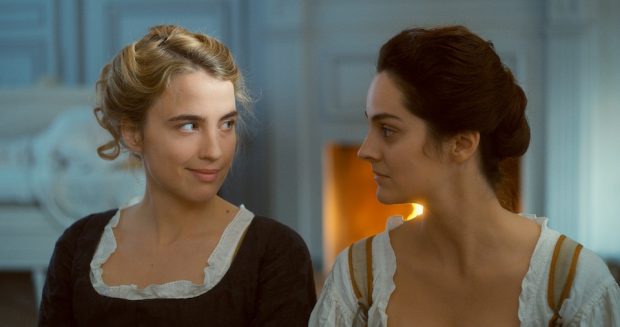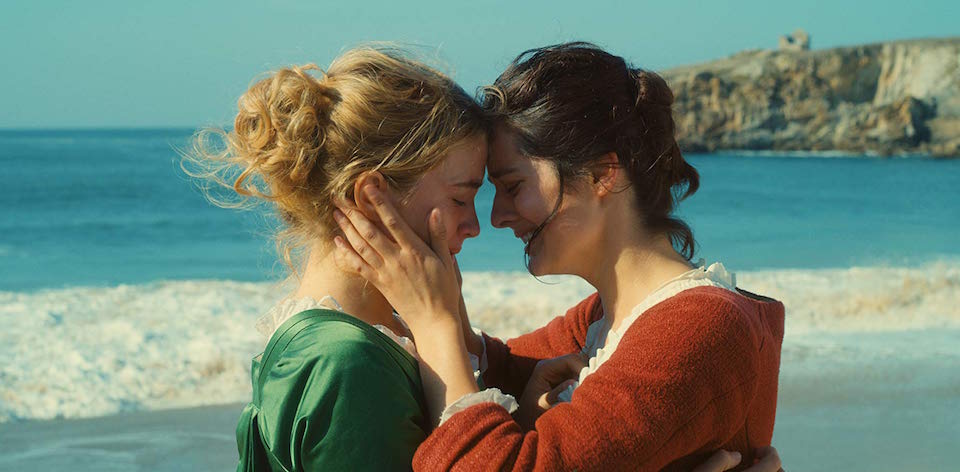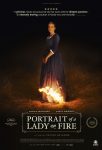Girlhood director and My Life as a Zucchini screenwriter Céline Sciamma became the first woman to win the Queer Palm at Cannes. While the reasons it took a decade for this to happen is another discussion entirely, it’s easy to see why PORTRAIT OF A LADY ON FIRE (Portrait de la jeune fille en feu) will land on all the ‘best of’ lists as we close out that decade.
Sciamma’s film is a staggeringly powerful and evocative romance set against the backdrop of a remote island in Brittany at the end of the eighteenth century. Artist Marianne (Noémie Merlant) has been commissioned by the Countess (Valeria Golino) to paint a portrait of Héloïse (Adèle Haenel) prior to her reluctant marriage. Héloïse refuses to sit for the painting, so Marianne acts as a hired companion and observes. As their relationship grows stronger, Marianne is torn by the trust and passion she has engendered in Héloïse.
Led by a pair of powerful performances from Merlant and Haenel, Sciamma uses Claire Mathon’s (Atlantics) photography like a precision instrument to envelop us in this closed world. This is no male fantasy about two women in isolation finding love, but rather a musing on the power of friendship and trust. Sciamma’s slow-build tension is organic, and despite the almost complete absence of men in the film the bounds of the dominant paradigm is present just behind the scenes. A subplot with the wonderful Luàna Bajrami as Sophie the handmaiden, for example, is about home abortion.

Electronic music producer and director Jean-Baptiste de Laubier and Arthur Simonini are ostensibly the composers on the film, yet there’s a notable absence of an active score in this studied construction. As Marianne and Héloïse wander wind-swept coastlines or haunt candlelit hallways, there’s a tangible weight to the silence of their longing. There’s two massive exceptions to this: a group of apparent pagan women chanting by firelight and the final scene of the film.
Effectively a two-hander – save for a handful of wonderful scenes with Golino or Bajrami – the duo of Merlant and Haenel carry the entire emotional weight of the film. Built partly around the repeatedly referenced myth of Orpheus and Eurydice, each character is given a chance to slowly unfold their backstory as Sciamma teases out the fears underlying their passions.
If the rest of the film flirts with greatness, then the final 20 minutes or so tips it over into masterpiece territory. A devastating use of Vivaldi’s Four Seasons, while focusing entirely on Haenel’s face, will leave you breathless as it taps into feelings of loss and regret that entire tomes have never managed to capture so effectively.
2019 | France | DIRECTOR: Céline Sciamma | WRITERS: Céline Sciamma | CAST: Noémie Merlant, Adèle Haenel, Valeria Golino | DISTRIBUTOR: Madman Films| RUNNING TIME: 120 minutes | RELEASE DATE: 26 December 2019 (AUS)





